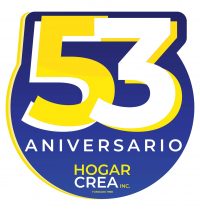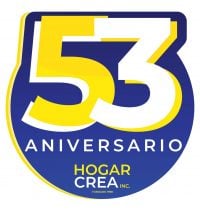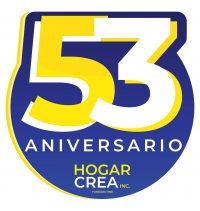Vanesa Vazquez Substitute Home
Drug Rehab Center in Rio Grande, Puerto Rico
- Mental Health
- Dual Diagnosis
Vanesa Vazquez Substitute Home, located in Rio Grande, Puerto Rico, provides addiction and substance abuse services, including individualized treatment plans, therapy, counseling, family counseling, and education programs.
About Vanesa Vazquez Substitute Home in Puerto Rico
Vanesa Vazquez Substitute Home in Rio Grande, Puerto Rico is a facility that provides addiction and substance abuse services. The focus of their mission is to empower individuals and families to live a healthy and meaningful life. They offer a variety of services, including therapy, counseling, family counseling, and education programs, to help individuals struggling with addiction. The experienced team of professionals at Vanesa Vazquez Substitute Home is dedicated to providing a supportive environment for all residents.
Vanesa Vazquez Substitute Home offers individualized treatment plans to help individuals struggling with addiction. They provide evidence-based, hands-on therapies, such as cognitive behavioral therapy (CBT), dialectical behavior therapy (DBT), and motivational interviewing, that are designed to help those with addiction to identify the underlying causes of their dependence and to learn new techniques to cope and manage their struggles. Additionally, they offer group sessions, including relapse prevention and life skills support groups, to foster community, accountability, and group support.
Vanesa Vazquez Substitute Home is a licensed, accredited facility that is committed to providing quality care. They have received numerous awards and accolades, such as the National Association of Addiction Treatment Providers’ Outstanding Achievement Award and the Addiction Professional’s Excellence in Quality Award. They work closely with community organizations to ensure that their residents have access to the best possible resources for continued recovery. Further, Vanesa Vazquez Substitute Home is a member of the National Network of Addiction Treatment Providers, which allows them to keep up to date on the most effective and innovative treatment plans.
Genders
Ages
Modality
Additional
Conditions and Issues Treated
Dual diagnosis refers to someone who has both an addiction and a mental or emotional illness. Dual diagnosis treatment includes therapy for both issues simultaneously, allowing for effective treatment of either.
Sometimes people with addiction disorders also have co-occurring disorders like depression, anxiety, bipolar disorder, etc. These require specialized treatment programs that address both drug and alcohol addiction as well as psychiatric illnesses. Some rehabilitation facilities provide patients with co-occurring disorders a program with highly integrated services and a clean, distraction-free environment.
Levels of Care Offered
This center offers a variety of custom treatment tailored to individual recovery. Currently available are Dual-Diagnosis, Inpatient, with additional therapies available as listed below.
Inpatient treatment is a form of recovery used in drug rehab. Inpatient recovery offers individual therapy, groups, and family therapy to ensure that the addict has the best recovery possible. A variety of treatments are provided in this type of recovery, depending on what treatment the addict needs at that particular time.
The length of inpatient addiction treatment depends on the addict and their addiction. Inpatient rehabilitation can last anywhere from 30 days to 90 days, depending on how severe the drug abuse is. Inpatient rehab is a costly drug treatment, costing anywhere from $30k- to $60k. However, insurance often offers help in covering these costs.
Therapies & Programs
Different people react differently to various treatment options. Some drug rehabilitation centers offer individualized treatment that caters to the specific needs of a drug addict. The best treatment option varies on an individual depending on the type of drug abused, life history, medical condition of the person, social circumstances, and the environment they live in now.
When a person enters drug rehab, they usually have anti-drug associations such as withdrawal symptoms, stress, cravings, etc. The first step of drug rehab is to detoxify the body from any residual substances in it. Drug rehabilitation centers usually employ trained medical professionals to help in this process. Usually, the initial detoxification lasts for five days, where the person is monitored under close supervision.
Attending group therapy at Vanesa Vazquez Substitute Home in , is a useful way for those seeking sobriety to realize they aren’t the only one going through it.
This is when a group of people on different recovery phases get together and talk about what they’re going through, their triggers, successes, and failures. This can include alternative types of therapies too! Group therapy may occur on an outpatient or inpatient basis with groups that have no pre-existing relationships outside the session, unlike support groups where everyone already knows each other beforehand.
Trauma therapy is a form of therapy used to help people process and understand past traumas. This can help struggling addicts, as many people turn to drugs or alcohol to mask the pain of their past. Trauma therapy can be done in several ways, such as through visualization, discussion, and writing down thoughts and feelings. The goal is to help the individual understand why they are having problems coping with certain situations and changing how they think and react to things. This is often done in tandem with other therapies to treat the underlying issues associated with addiction.
The idea behind trauma therapy is that while some people can experience traumatic events and not have lasting psychiatric symptoms, many others will. In these cases, memories get hidden from consciousness but continue to influence how the person processes and copes with things in their life. They may avoid situations that resemble what happened or become suddenly angry or irritated to a situation that reminds them of a past event. With the help of a therapist, people can go back over memories and experiences. This helps them understand why they are having problems coping with certain situations and changing how they think and react to things.
This type of cognitive-behavioral therapy helps people understand how their thoughts, behaviors, and feelings are interconnected. It can help patients with borderline personality disorder gain control over their actions and stop self-harming thoughts and attempts.
Cognitive Behavioral Therapy is a type of psychotherapy that helps people address the thoughts and behaviors that may have led to their addiction. It also helps change negative thoughts into positive ones and promotes healthy communication between addicts and those around them. CBT is an efficient treatment for individuals suffering from all sorts of addictions.
Cognitive Behavioral Therapy (CBT) focuses on the underlying thoughts and behaviors that caused the problem of addiction in the first place and may cause a relapse. Negative feelings are common in drug abuse disorders, but they can lead to co-occurring disorders if not recognized. CBT involves strategies that help to change the behavior pattern by restructuring negative thoughts into positive ones. It helps to remove these feelings, and it provides long-term benefits. Also, CBT promotes self-awareness, self-control and can be administered as a mono-therapy or as part of combination therapy.
Good nutrition can be difficult for people recovering from addiction because they may not feel like eating while they are experiencing the physical and emotional side effects of detoxing.
Nutrition therapy can help addicts in the following ways:
- Helps individuals to understand which foods promote good health and support recovery that will assist them during detox
- Provides guidance and education about how to maintain a nutritious diet so they can stay healthy during recovery
- Improves their overall health and well-being, which can reduce the severity of substance withdrawal symptoms.
Nicotine replacement therapy is a popular method of treatment that helps individuals overcome their addiction to cigarettes by providing them with safer alternatives. Nicotine replacement options can include:
- Inhalers
- Gum
- Patches
These treatments are often used in combination with other therapies, such as cognitive behavioral therapy or motivational interviewing, to help individuals more easily transition into a smoking-free lifestyle.
Patient Experience
Experiential Therapy at Vanesa Vazquez Substitute Home
Experiential therapy is a type of therapeutic approach that focuses on having patients work through problems, issues, or emotions by engaging directly in some real experience. It occurs face-to-face with a therapist who helps these people to explore their feelings first hand. The hope is that when this happens, the patient will feel driven to turn away from their destructive behavior and instead take up positive behaviors or coping mechanisms. Direct experience methods, role play, psychodrama, interpersonal and social learning are a few different forms of experiential therapy.
Payment Options Accepted
For specific insurance or payment methods please contact us.
Additional Details
Specifics, location, and helpful extra information.
Rio Grande, Puerto Rico 745 Phone Number(787) 888-0954 Meta DetailsUpdated November 25, 2023
Staff Verified
Vanesa Vazquez Substitute Home Patient Reviews
There are no reviews yet. Be the first one to write one.
Rio Grande, Puerto Rico Addiction Information
Treatment in Nearby Cities
- Coamo, PR (37.6 mi.)
- Guayama, PR (31.0 mi.)
- Luquillo, PR (10.1 mi.)
- Orocovis, PR (35.4 mi.)
- Canovanas, PR (1.7 mi.)
Centers near Vanesa Vazquez Substitute Home




The facility name, logo and brand are the property and registered trademarks of Vanesa Vazquez Substitute Home, and are being used for identification and informational purposes only. Use of these names, logos and brands shall not imply endorsement. RehabNow.org is not affiliated with or sponsored by Vanesa Vazquez Substitute Home.

